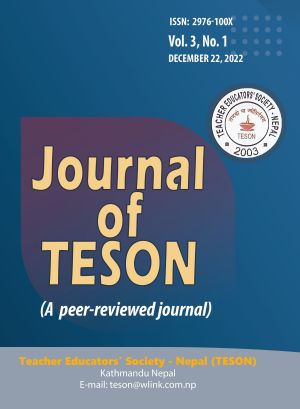Leadership Theory of Human Relationship and its Educational Implication
DOI:
https://doi.org/10.3126/jteson.v3i1.51767Keywords:
Human relationship, management, Hawthorne study, job performance, contributionAbstract
The paper explores the concept of leadership, human relationship theory, its assumptions, contribution to education and criticism. Drawing on relevant existing literature, this document-based paper reports that the theory of human relationship emphasizes the study of behaviour of workers and examines the effects of social relations, motivation and employee satisfaction on productivity. The main finding in relation to this theory is that the physical condition of a workplace does not determine the employee’s morale and output but group efforts and effective human relation increase workers' morale and productivity. The effective implementation of the theory of human relation develops workers’ efficiency, service quality in any organization, which the educational institutions that produce human resources need to consider while designing their policies and implementing their programs.




